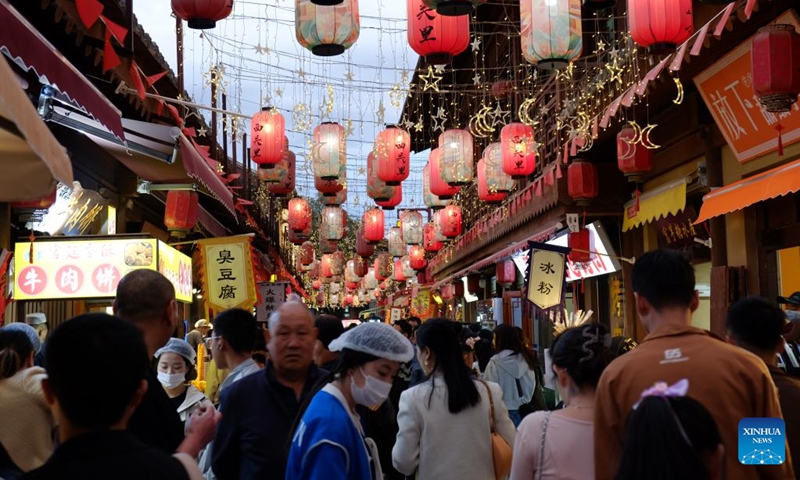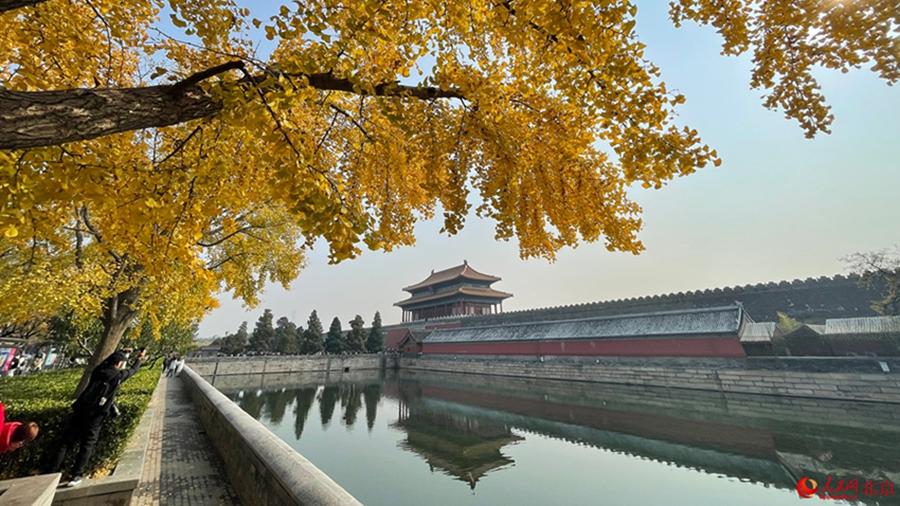China extends national public holidays by two days starting 2025, a positive response to public expectations

Tourists visit the ancient city of Tianshui in Qinzhou District of Tianshui City, northwest China's Gansu Province, May 1, 2024. Traffic has surged at tourist attractions throughout the country during the 5-day May Day holiday beginning on May 1. (Photo: Xinhua)
Chinese Premier Li Qiang has signed a State Council decree unveiling revised measures on holiday arrangements, extending public holidays by two days.
The Spring Festival holiday is extended from three days to four days, with the eve of the Chinese Lunar New Year added. The May Day holiday is increased from one day to two days, with May 2 added, the Xinhua News Agency reported.
The new measures will come into effect on January 1, 2025, the State Council said in a statement.
In 2025, there will be an eight-day holiday for Spring Festival, five days for the May Day holiday, and as Mid-Autumn Festival in 2025 falls on October 6, it will be combined with the National Day holidays to make another eight-day break from October 1-8, the announcement said.
Optimizing holiday arrangements is a positive response to public expectations, aligning with the wishes and interests of most Chinese people, analysts said.
The adjustment is a significant return to the tradition of Lunar New Year's Eve being a part of the statutory holiday after it was excluded in 2014, aiming to ensure better family reunions and enjoyment of the Spring Festival, observers said.
Extending the May Day holiday by one day means that combining with two days off in weekend and only one additional workday off can form a five-day break, which can minimize disruptions to the public's normal work and life routines. Previously, two days of adjusted working days were needed for a five-day break.
In recent years, Chinese government has arranged adjusted working days to allow people to enjoy longer continuous rest during certain holidays, meeting their needs for visits and tourism. However, in practice, some consider that such arrangement disrupts their daily life and work, for sometimes people have to work seven consecutive days after the holiday.
Public holidays can be arranged to combine with adjacent weekends or paid annual leave to form longer holiday periods. Except in rare cases, working days surrounding national holidays generally will not exceed six consecutive days, according to Xinhua.
New holiday arrangements align with public desires for more rest and leisure, and it is also expected to benefit consumption growth and boost the service industry, especially the tourist and leisure sectors, Li Changan, a professor at the Academy of China Open Economy Studies at the University of International Business and Economics, told the Global Times on Tuesday.
"Enhancing residents' quality of life and fostering holiday economic prosperity have been among the key focuses of China's efforts in driving economic growth and promoting well-being in recent years," Li Changan added.
Within half an hour of the announcement, China's online travel agency Qunar saw a 2.2-fold increase in searches for airline tickets during next year's Spring Festival, with users from more than 300 cities searching for travel plans over the holiday period as of press time, the company told the Global Times on Tuesday.
Data from travel platform Tongcheng Travel indicates that airline ticket searches for the Spring Festival holiday saw a more than threefold increase compared to the previous day, and the trend continues to rise, according to the company.
Photos
Related Stories
- Holiday travel bookings soar up for National Day
- In Numbers: Travel, consumption boom during National Day holiday
- Graphic Analysis: Surging holiday spending fuels development goals
- Nearly 1,000 lost identity cards collected by train station in South China during holidays
- China extends public holidays by two days
Copyright © 2024 People's Daily Online. All Rights Reserved.









